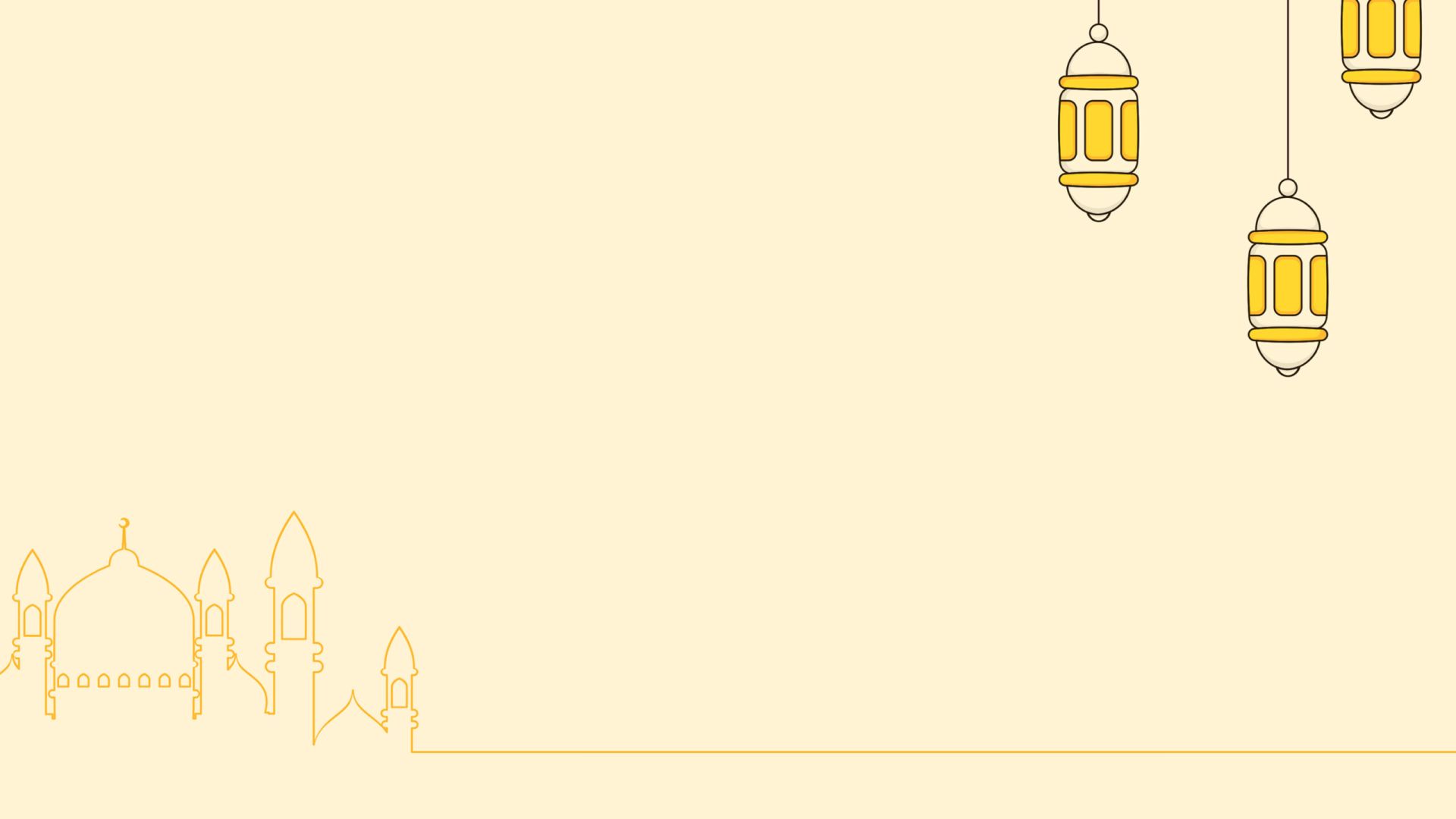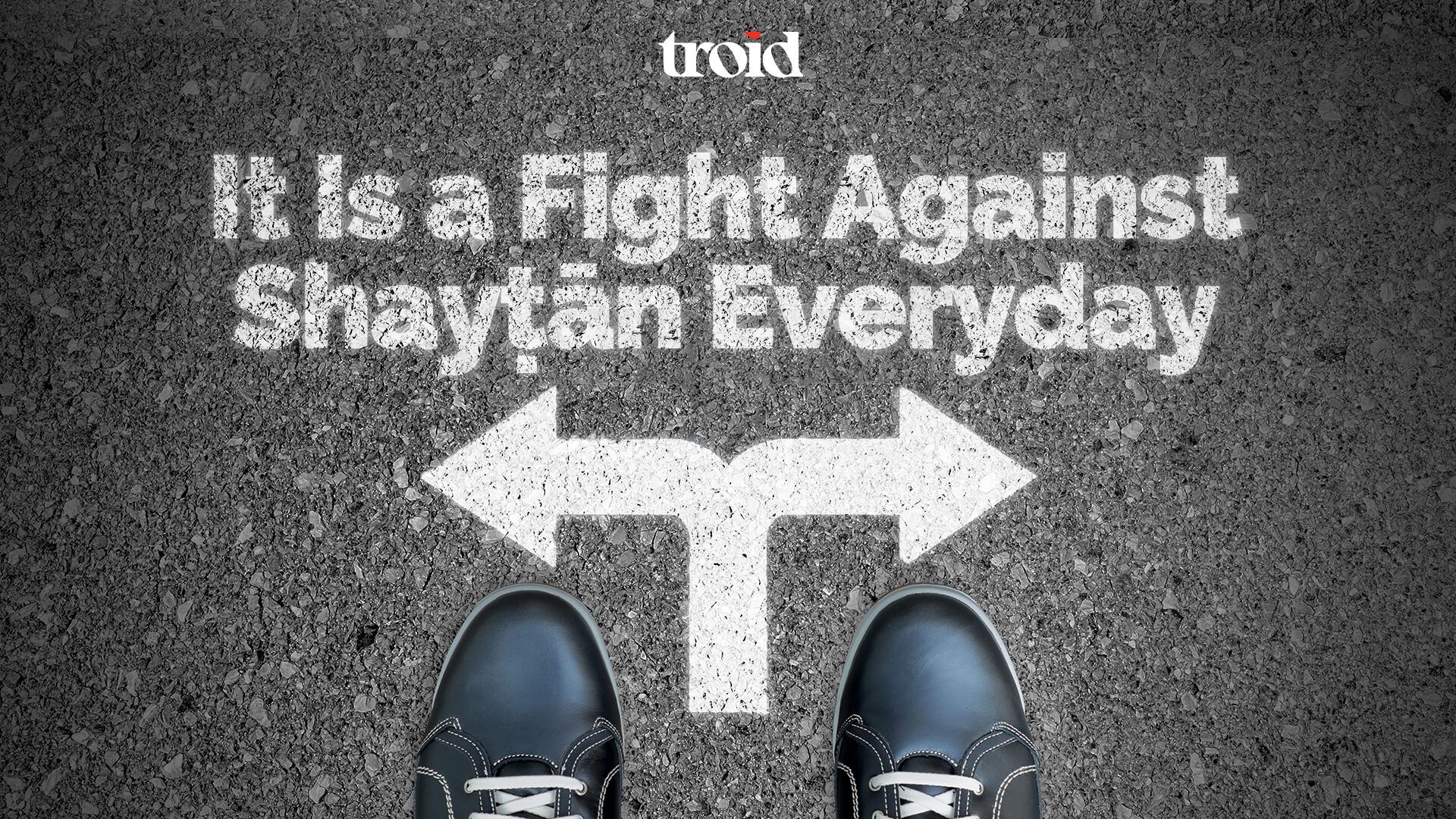Tafsīr of Sūrah al-Furqān, Commentary to ‘The Criterion’
Al-ʿAllāmah Muḥammad al-Amīn al-Shanqītī


The way of the disbelievers was to invent certain characteristics that they thought a prophet should have and then show how the Prophet was lacking in these. However in this they were wondering aimlessly, not able to find a set of characteristic that they could all settle on as has preceded in the previous verse.
[Compiled from the tafsīrs of al-Tabarī, al-Qurṭabī, ibn Kathīr, al-Shawkānī, as-Saʿdee and al-Shanqītī, may Allāh have mercy on them all.]
Blessed be He Who sent down the Criterion to His Servant so that he may be a Warner to the worlds.
He to Whom belongs the dominion of the heavens and the earth; He has no son and neither has He a partner who shares in the dominion; He has created all things and ordered them with precise determination.
Allāh, the Exalted praises His Noble Self for revealing this Great Qurʾān to the Noble Messenger (ṣallallāhu ʿalayhi wa-sallam) as He does in other places in the Qurʾān such as His saying,
“All praise is due to Allāh Who has revealed the Book to His Servant and has not made therein any crookedness. [He has made it] straight in order that He may warn of a terrible punishment from Him and to give good tidings to the believers who do righteous deeds that they will have a goodly reward.”
[al-Kahf (18): 1-2]
In the title verse He has used the word tabaaraka which indicates the emanation of perpetual blessings that never cease. This fact alone necessarily points to His Greatness, His Holiness and His being free of any aspect of imperfection. This is because the One from whom emanates all blessings, goodness and sustenance for mankind is the One Who is uniquely singled out with Greatness and the One Who Alone deserves sincere worship. As for the one from whom emanates no blessings, goodness or sustenance, such as the idols and indeed anything that is worshipped besides Allāh, then such things do not deserve to be worshipped. Indeed to worship them is explicit disbelief and the one who does this [and dies upon this] shall abide forever in Hellfire. Allāh says,
“Indeed, those who you worship besides Allāh have no power to give you any provision or sustenance. So seek sustenance from Allāh, worship Him and be grateful to Him. To Him you will be returned.”
[Al-ʿAnkabūt (29): 17]
“They worship besides Allāh that which does not possess any power of providing sustenance for them from the heavens and the earth, indeed, they cannot possibly have such power.”
[Al-Naḥl (16): 73]
“He is the One Who feeds yet is not fed.”
[Al-Anʿām (6): 14]
“He is the One Who shows you His signs and sends down to you provision from the sky. But none receives admonition except for him who turns back [in repentance]. So invoke Allāh, being sincere to Him in religion even though the disbelievers dislike it.”
[Al-Ghāfir (40): 13-14]
Know that the word Tabaaraka is a word that can only be related to Allāh and is specific to Him. It has no present tense, verbal noun or active participle. In mentioning this word alongside His words, “Who sent down the Criterion” lies an indication that the revelation of The Criterion is from the greatest blessings and favours that Allāh has bestowed upon His creation. This is why He praises Himself for it as mentioned in the previously quoted verse of al-Kahf thereby teaching us that He is to be praised for this great blessing. Allāh says,
“O Mankind! There has come to you a conclusive proof from your Lord and We have sent down to you a clear light. Therefore, those who believe in Allāh and hold fast to Him – He will admit them to mercy from Himself and bounty and guide them to Himself on a Straight Path.”
[Al-Nisāʾ (4): 174-175]
“Is it not sufficient for them that We have revealed to you the Book which is recited to them? Indeed in that is a mercy and admonition for a people who believe.”
[Al-ʿAnkabūt (29): 51]
“We have sent down of the Qurʾān that which is a healing and a mercy.”
[Al-Israa` (17): 82]
“Say: ‘It is cure and guidance for those who believe.’”
[Fussilāt (41): 44]
“Who has sent down the Criterion” using the verb nazzala which implies a repetitive and frequent action. In a similar vein is His saying,
“O you who have believed! Believe in Allāh and His Messenger and the Book that He sent down to His Messenger and the Scripture which He revealed before.”
[Sūrah al-Nisāʾ (4): 136]
This is because the Scripture that was revealed aforetime was sent down as one entity whereas the Qurʾān was revealed piecemeal at different times, verses after verses, ruling after ruling and chapter after chapter. Revealing it in this manner was more effective and the impact greater, just as it was easier upon the one to whom it was revealed.
“Those who disbelieve say: ‘Why was the Qurʾān not revealed to him all at once?’ Thus [it is] that We may strengthen your heart, and We have rehearsed it to you in well-arranged stages. And they do not come to you with a question [or argument] except that We bring you the truth and best explanation.”
[Al-Furqān (25): 32-33]
It is for this reason that the Qurʾān is called the Criterion – because it differentiates between truth and falsehood, between guidance and misguidance and between the lawful and prohibited.
“To His Servant.” This description is mentioned by way of praising and extolling because Allāh has mentioned him (ṣallallāhu ʿalayhi wa-sallam) alongside His servitude hence showing that the servitude expressed by Muḥammad (ṣallallāhu ʿalayhi wa-sallam) was complete. He (ṣallallāhu ʿalayhi wa-sallam) was referred to in the same way when he was in the best of situations and that was the occasion of the Nights Journey,
“Exalted is He, above any imperfection, Who took His Servant by night from Masjid al-Ḥarām to Masjid al-Aqsaa.”
[Al-Israa` (17): 1]
He was also described with this title when he supplicated to Allāh,
“When the Servant of Allāh stood up, supplicating to Him, they [surrounded him such that they] almost became about him a compacted mass.”
[Al-Jinn (72): 19]
And He has also been described with this title in the context of revelation and the descent of the Angel to him.
“So that he may be a Warner to the Worlds.” Meaning that he has been singled out to receive this Great Book that explains everything in detail, this book about which He said,
“Falsehood cannot approach it from ahead or behind. It is a revelation from [He Who is] Wise and Praiseworthy.”
[Fussilāt (41): 42]
So that he may be a Messenger to all the nations till the Day of Judgement. This verse embodies a clear statement that the message of Muḥammad (ṣallallāhu ʿalayhi wa-sallam) is universal and this is further confirmed with the sayings of Allāh,
“Say [O Muḥammad]: ‘O Mankind, indeed I am the Messenger of Allāh to you all.’”
[Al-A`raaf (7): 158]
“And We have not sent you except [as a Messenger] to the whole of mankind.”
[Saba` (34): 28]
“Say: ‘What thing is the greatest in testimony?’ Say: ‘Allāh is a witness between you and me. This Qurʾān was revealed to me so that I may warn you and whosoever it reaches.’”
[Al-Anʿām (6): 19]
“O Company of Jinn and mankind, if you are able to pass beyond the regions of the heavens and the earth, then do so. You will not pass except with authority [from Allāh]. So which of the favours of your Lord would you deny?”
[Al-Raḥmān (55): 33-34]
The Messenger of Allāh (ṣallallāhu ʿalayhi wa-sallam) said, “I have been sent to the red and black [people].”
He (ṣallallāhu ʿalayhi wa-sallam) also said, “I have been given five things that were not given to any Prophet before me… The [previous] Prophet used to be sent to his specific nation whereas I have been sent to all people.”
“He to Whom belongs the Dominion of the heavens and earth”: In this noble verse Allāh has praised Himself due to five matters each one of which proves His greatness and His right to be worshipped Alone.
He is the One to whom belongs the Dominion of the heavens and the earth. Allāh says,
“Do you not know that to Allāh belongs the dominion of the heavens and the earth. He punishes whom He Wills and forgives whom He Wills.”
[Al-Maʾidah (5): 40]
“That is Allāh, your Lord. To Him belongs all sovereignty and those whom you invoke besides Him do not possess [as much as] the membrane of a date seed.”
[Fāṭir (35): 13]
“To whom belongs the sovereignty this day? To Allāh, the One, the Irresistible.”
[Ghāfir (40): 16]
That he has not taken a son, far Exalted above that is He! How can He have a son when He is Self-Sufficient and Omnipotent while the whole creation is in dire need of Him in all of their affairs! Allāh says,
“They say: ‘The Most Merciful has taken a son.’ You have put forth an atrocious thing! At it the heavens are about to rupture and the earth spill open and the mountains collapse! That they attribute to the Most Merciful a son and it is not befitting for the Most Merciful that He take a son. There is no one in the heavens and earth but that he comes to the Most Merciful as a servant.”
[Maryam (19): 88-93]
“And to warn those who say: ‘Allāh has taken a son.’ They have no knowledge of this and neither had their forefathers. Grievous is the word that comes out of their mouths; they speak only a lie.”
[Al-Kahf (18):5]
“He does not beget and neither is He begotten. There is nothing like Him.”
[Al-Ikhlās (112): 3-4]
That He has no partner that shares in His dominion. Allāh says,
“Say: ‘Praise be to Allāh who has not taken a son and has no partner in His dominion and has no [need of a] protector out of weakness. So magnify Him with [great] magnification.”
[Al-Israa` (17): 111]
“Say: ‘Supplicate to those who you claim [to be gods] besides Allāh.’ They do not possess an atom’s weight [of power] in the heavens or on the earth; they do not have therein any share [with Him]; and neither is there for Him from amongst them any assistant.”
[Saba` (34): 22]
That He is the Creator of everything. Allāh says,
“[He is] the Originator of the heavens and the earth. How could He have a son when He has no consort and He created all things? He is Knowing of all things. That is Allāh, your Lord; there is no deity save Him, so worship Him. He is the Disposer of all things.”
[Al-Anʿām (6): 101-102]
“That is Allāh, your Lord, Creator of all things; there is no deity save Him, so how are you deluded?”
[Ghāfir (40): 62]
That He ordered everything with precise determination. Allāh says,
“The One Who created and proportioned. Who destined and then guided.”
[Al-A`lā (87): 2-3]
“Everything with Him is by due measure.”
[Ar-Ra`d (13): 8]
Yet they have taken gods besides Him which create nothing but are themselves created; they possess no authority to [repress] harm or [bring] good to themselves and neither do they possess any ability to cause death, life or resurrection.
Allāh, the Exalted informs us of the ignorance that these polytheists have fallen into in that they take gods aside from Allāh, explaining to them their error. Allāh the Creator of everything, the King of every affair, everything that He Wills comes into being and everything that He does not Will can never come into being. On the other hand these idols do not even have the ability to create a mosquito’s wing, they do not even have the ability to repress from themselves harm or bring themselves benefit so how can they possibly bring benefit to those who worship them!
“They do not possess any ability to cause death, life or resurrection.”
[Al-Furqān (25): 3]
This ability belongs to Allāh and Allāh Alone, it is He Who causes death, gives life and will resurrect the whole of creation on the Day of Judgement, from the first to the last. Hence in this verse Allāh has mentioned six defects in those who are worshipped besides Him, any one of which proves the futility of this worship, indeed proves that it is complete injustice and can only arise from sheer ignorance.
They do not have the ability to create anything. Allāh says,
“Those who you invoke besides Allāh cannot create as much as a fly, even if they were to gather together for that purpose.”
[Al-Ḥajj (22): 73]
“Those who they invoke besides Allāh create nothing and they are themselves created. They are dead, lifeless, and they do not know when they will be resurrected.”
[Al-Naḥl (16): 20-21]
“Say: ‘Have you considered your partners whom you invoke besides Allāh? Show me what they have created from the earth, or do they have any share [with Him] in the heavens? Or have We given them a book such that they are upon clear evidence? [No], rather the wrongdoers promise each other nothing save delusion.”
[Fāṭir (35): 40]
Those objects that are worshipped besides Allāh are themselves created. Indeed, the idols amongst them are fashioned by the hands of the worshippers! Allāh says,
“Those who they invoke besides Allāh create nothing and they are themselves created.”
[Al-Naḥl (16): 20-21]
“Do they associate with Him those who create nothing and are themselves created?”
[Al-A`raaf (7): 191]
Allāh has explained to us the distinction between those who create and those who do not create, clarifying that it is the One Who creates that deserves worship,
“O Mankind! Worship your Lord Who created you.”
[Al-Baqarah (2): 21]
“Then is He Who creates like the one who does not create? Will you not then take heed?”
[An-al-Naḥl (16): 17]
“Or have they attributed to Allāh partners who create the likes of His creation so that the creation of each seemed similar to them? Say: ‘Allāh is the Creator of all things and He is the One, the Irresistible.’”
[Ar-Ra`d (13): 16]
They do not have the ability to remove harm or bring about benefit for themselves. Allāh says,
“Say: ‘Have you taken allies besides Him who do not possess the ability to bring themselves benefit or [repress the] harm?’”
[Ar-Ra`d (13): 16]
“Do they associate with Him those who create nothing and are themselves created? [These false deities] are unable to bring them benefit or even benefit themselves!”
[Al-A`raaf (7): 191-192]
“And if you were to invite them to guidance they would not follow you. It is the same whether you call them or remain silent [they will not take heed]. Indeed, those who you [polytheists] call upon besides Allāh are servants like yourselves. So call upon them and let them respond to you if you are indeed truthful. Do they have feet by which they walk? Do they have hands by which they strike? Do they have eyes by which they see? Do they have ears by which they listen?”
[Al-A`raaf (7): 193-195]
These verses constitute clear evidence that they can bring no benefit, even to themselves. Allāh says,
“If the fly should take from them a [tiny] thing they could not recover it from it. Weak indeed are the seekers [after these gods] and the sought.”
[Al-Ḥajj (22): 73]
4, 5, 6. They do not have the ability to cause death, bring about life or cause the Resurrection. Allāh says,
“Allāh is the One Who created you, then provided for you, then will cause you to die, and then will give you life. Are there any of your partners who can do any of this? Exalted is He, high above what they associate with Him.”
[Ar-Rum (30): 40]
“Say: ‘Are there any of your partners who begins the creation and then repeats it?’ Say: ‘Allāh begins the creation and then repeats it, so how are you deluded?’”
[Yunus (10): 34]
Therefore, He is Allāh besides who there is no other god, there is no other Lord and Sustainer besides Him, He does not have a son, a partner or equivalent. He is the One, the Self-Sufficient, He is the Creator and Master of everything. Everything is under His Sovereignty and control and all that they worship besides Him is false and baseless.
“[These false gods] are nothing but mere names that you have invented – you and your forefathers – for which Allāh has sent down no authority. They follow nothing save conjecture and what their souls desire.”
[Al-Najm (53): 23]
Those who disbelieve say: “This [Qurʾān] is nothing save a lie that he invented and another people aided him in it.” In truth, it is they who have put forward an iniquity and lie.
They further say: “Legends of the ancients which he has written down and are dictated to him morning and evening.”
Say [O Muḥammad]: “It has been revealed by He Who knows [every] secret within the heavens and the earth. Indeed, He is ever Forgiving and Merciful.”
After proving the Oneness of Allāh and His sole right to be worshipped through decisive proofs, Allāh then proceeds to establish the truthfulness of His Noble Messenger (ṣallallāhu ʿalayhi wa-sallam) and the validity of the Qurʾān as His Word.
“In truth it is they who have put forward an inequity and lie”: Meaning that they themselves have invented a lie against Muḥammad (ṣallallāhu ʿalayhi wa-sallam) while knowing that it is a lie. They propounded this ridiculous claim that he had written the Qurʾān as dictated to him by some other people knowing full well that he could not write. Allāh says,
“You did not recite any scripture before it nor are you able to write one with your right hand. In that case the falsifiers would have had cause to doubt.”
[Al-ʿAnkabūt (29): 48]
“Those who follow the unlettered Prophet whom they find mentioned in what they have of the Torah and the Gospel…”
[Al-A`raaf (7): 157]
Not only this but the person they pointed the finger to who was the supposed dictator could not even speak pure Arabic whereas none denied that the Qurʾān was of the highest standard of Arabic! Allāh says,
“We certainly know that they say: ‘It is only a human being who teaches him.’ But the tongue of the one they refer to is foreign and this [Qurʾān] is in a clear Arabic language.”
[Al-Naḥl (16): 103]
Allāh has explained to us the extent of their lies, harassment and self-contraḍīction pointing out that they saw no harm in accusing a non-Arab of dictation but had this Qurʾān been revealed in a foreign language they would have rejected it,
“If We had made it a foreign Qurʾān they would have said: ‘Why are its verses not explained in detail [in our language]? Is it a foreign [recitation] and an Arab [Messenger]?’”
[Fussilāt (41): 44]
Similarly Allāh explains that if the Qurʾān had been revealed to a non-Arab in Arabic they would also rejected it,
“And if We had revealed it to one among the foreigners, and he had recited it to them [in Arabic perfectly] they would still not have believed.”
[Ash-Shu`araa (26): 198-199]
So how is it that they can reject the above and yet not reject that the so-called teacher be a foreigner whereas the Messenger (ṣallallāhu ʿalayhi wa-sallam) was an Arab!
Furthermore Muḥammad (ṣallallāhu ʿalayhi wa-sallam) was a person, who lived amongst them forty years before his Prophethood and they knew him to be, and testified to his truthfulness, sincerity, piety, trust, his lack of involvement in any sort of sinful, unjust act and his being free of any base characteristics. Because of this they had used to call him by the title Al-Amīn (the truthful and trustworthy).
Then after Allāh ennobled him with Prophethood they actively opposed him and accused him in this way whereas every intelligent person amongst them knew that in truth he was free of these lies. Sometimes they accused him of sorcery, sometimes of poetry sometimes of madness and other times of lying. Allāh says,
“Look how they propound comparisons for you [in order to discredit you] but they have strayed and so cannot find a way.”
[Al-Furqān (25): 9]
“Say [O Muḥammad]: ‘It has been revealed by He Who knows [every] secret within the heavens and the earth”: Meaning that the Qurʾān has been revealed containing mention of the past people and events and future events that are completely true and testified to by reality and hence it becomes obvious who truly revealed it. So now that their claims are proven false it becomes clear that this Qurʾān has been revealed by One Who knows every secret thing and therefore obviously knows every apparent thing, hence the Prophet (ṣallallāhu ʿalayhi wa-sallam) is left in no need of a teacher other than Allāh.
“Indeed He is ever Forgiving and Merciful”: Allāh calls them to repent and leave what they were upon, informing them that His Mercy encompasses everything and His Forbearance is great. Therefore He calls these people to repent and turn to the path of Guidance and Islām even after this grievous lie of theirs against His Messenger (ṣallallāhu ʿalayhi wa-sallam) and the Qurʾān, even after their disbelief and opposition and even after their open transgression. In a similar vein Allāh says,
“They have certainly disbelieved who say that Allāh is the third of three. There is no god save One God. If they do not desist from what they are saying, there will surely afflict the disbelievers among them a painful punishment. So will they repent to Allāh and seek His forgiveness? And Allāh is Forgiving and Merciful.”
[Al-Maʾidah (5): 73-74]
“Say to those who have disbelieved that if they cease then what has previously occurred will be forgiven for them.”
[Al-al-Anfāl (8): 38]
“Indeed those who tortured the believing men and believing women and then have not repented will have the punishment of Hell and they will have the punishment of the Burning Fire.”
[Al-Buruj (85): 10]
Al-Ḥasan al-Bʿasri said, “look at this kindness and generosity, they killed His friends and He calls them to repentance and mercy!”
7. And they say: “What sort of a Messenger is this, who eats food and walks through the markets? Why has not an angel been sent down to him to give admonition with him?
8. Or [why] has not a treasure been bestowed on him [from heaven], or why has he [not] a garden for enjoyment?” The wicked say: “You follow none other than a man bewitched.”
9. Look how they propound comparisons for you [in order to discredit you] but they have strayed and so cannot find a way.
10. Blessed is He Who, if He Willed, could give you better [things] than those, Gardens beneath which rivers flow; and He could give you Palaces [secure to dwell in].
In there attempts to belittle the Messenger of Allāh (ṣallallāhu ʿalayhi wa-sallam) the disbelievers criticised him for eating food and walking through the market places in order to sell, buy and fulfil his daily needs, arguing that a true messenger from Allāh would have been an Angel, who would not require such things. This was precisely what the disbelievers of old said,
“And the eminent among his people who disbelieved and denied the meeting of the Hereafter while We had given them luxury in the worldly life said: ‘This is just a man like yourselves. He eats of that which you eat and drinks of that which you drink. If you should obey a man like yourselves then indeed you would be of the losers.’”
[Al-Mu`minoon (23): 33-34]
“They said: ‘Is it one man amongst us that we should follow? Indeed we would then be in error and madness!’”
[Al-Qamar (54): 24]
Allāh refutes this claim saying that indeed the Messengers were men like themselves except that they had been honoured with revelation, that had he sent an Angel then it would have come in the form of a man and thus increased them in confusion. This is because the one sent has to be of the same species as those to whom he is sent in order to teach them in the best manner. Allāh says,
“We did not send before you any of the Messengers except that they ate food and walked in markets.”
[Al-Furqān (25): 20]
“And We sent before you only men to whom We sent revelation from among the people of the cities [to which they were sent].”
[Yusuf (12): 109]
“If We had made him an Angel, We would have made him appear as a man and We would have covered them with what they had covered themselves in [i.e. confusion].”
[Al-Anʿām (6): 9]
“Say: ‘If there were upon the earth angels walking securely then We would have sent them an Angel from heaven as a messenger.’”
[Al-Israa (17): 95]
Being a man in no way negates the possibility of being a Messenger,
“Say: ‘I am a man like yourselves to whom it has been revealed that your god is one God. So whosoever would hope for the meeting with his Lord – let him do righteous deeds and not associate anyone in the worship of his Lord.’”
[Al-Kahf (18): 110]
“Why has not an angel been sent down to him to give admonition with him?”: In these verses the polytheists asked three things:
That an Angel be sent to him that would testify to his truthfulness and hence leave no need of his preaching.
That he be given a treasure such that he would no longer need to walk the marketplaces.
That he be given a garden for enjoyment.
Az-Zamakhsari said, “he eats food like we eat and walks the marketplaces as we do. What they meant by this was that he should have been an Angel who was not in need of food and livelihood. Then they went one step down and suggested that at least he should have an Angel with him so that they could support each other in spreading the message. Then they went one step down and said that if he was not to be bestowed an Angel then at least he should be bestowed a treasure from the heaven such that he would not need to earn his livelihood. Then they went one step down and suggested that at least he should have a garden that he could eat from and enjoy in the way of those enjoining prominence or so that they themselves could eat from it and hence benefit from it. All of this arose due to lengths they went to in harassing the Prophet (ṣallallāhu ʿalayhi wa-sallam) and their rejection of him.”
They asked him similar things on other occasions,
“Then would you possibly leave some of what is revealed to you, or is your breast constrained by it because they say: ‘Why has there not been sent down to him a treasure or an Angel come with him?’ Indeed you are only a Warner.”
[Hud (11): 12]
Meaning that the Messenger of Allāh (ṣallallāhu ʿalayhi wa-sallam) was grieved by their words however Allāh comforted him and enjoined him to patience reminding him, through mentioning the accounts of the past Prophets, that he had an excellent example in his brothers who came before him. Reminding him that they were oppressed, tortured and mocked, but they bore all of this with patience until the Help of Allāh came. Allāh says,
“And We know that your breast is constrained by what they say. So exalt [Allāh] with the praise of your Lord and be of those who prostrate to Him. And worship your Lord until the certainty comes to you.”
[Al-Ḥijr (15): 97-99]
Allāh also mentions the extent to which they harassed the Noble Prophet (ṣallallāhu ʿalayhi wa-sallam) continuously asking him for signs,
“They say: ‘We will not believe in you until you cause a spring to gush from the ground. Or until you have a garden of palm trees and grapes and make rivers gush forth within them in abundance. Or you make heaven fall upon us in fragments as you have claimed or you bring Allāh and the Angels before us. Or you have a house of gold or you ascend into the sky. [Even then] we will not believe until you bring down to us a book that we may read.’ Say: ‘Exalted is my Lord! Was I ever but a human Messenger!’”
[Al-Israa` (17): 90-93]
The likes of this was also asked of Mūsá by Pharaoh,
“Then why have there not been placed upon him bracelets or gold or come with him Angels in procession?”
[Al-Zukhruf (43): 53]
Their hearts are the same and hence their words bear resemblance!
Allāh explains to us that their requests were made by way of mockery and had He sent down what they asked for they would still not have believed,
“Even if We had sent down to you a written scripture on parchment and they touched it with their hands, the disbelievers would say: ‘This is nothing but clear magic.’”
[Al-Anʿām (6): 7]
“Even if We opened to them a gate from the heaven and they continued therein to ascend they would say: ‘Our eyes have only been dazzled. Rather we are a people affected by magic.’”
[Al-Ḥijr (15): 14-15]
“Even if We had sent down to them the Angels and the dead spoke to them and We gathered together every [created] thing in front them, they would not believe unless Allāh should will. But most of them ignore the truth.”
[Al-Anʿām (6): 111]
“Indeed those upon whom the word of your Lord has come into effect will not believe, even if every sign should come to them.”
[Yunus (10): 96-97]
Even at the end of this verse, after asking for all these things and realising their futility the disbelievers are left with no recourse but to say,
“You follow none other than a man bewitched.”
“Look how they propound comparisons for you [in order to discredit you]”: The way of the disbelievers was to invent certain characteristics that they thought a prophet should have and then show how the Prophet (ṣallallāhu ʿalayhi wa-sallam) was lacking in these. However in this they were wondering aimlessly not able to find a set of characteristic that they could all settle on as has preceded in the previous verse. In the same way they labelled the Prophet (ṣallallāhu ʿalayhi wa-sallam) but could not come up with a consistent set of labels that would fit him. Sometimes they called him a magician, other times one affected by magic, other times one who was mad, a liar, a soothsayer or a skilled poet. All of these labels in reality were self-contraḍīctory and could not possibly all co-exist in one person, hence they could not find a way to discredit the Messenger of Allāh (ṣallallāhu ʿalayhi wa-sallam). Because all there efforts were expended in trying to oppose the Prophet (ṣallallāhu ʿalayhi wa-sallam) neither were they able to find a way to the truth.
“They were not able to hear and neither did they see.”
[Hud (11): 20]
Meaning that they became unable to hear the truth such they would be able to benefit from it and neither see the guidance such that they would be guided by it. Allāh says,
“But their hearing, vision and hearts availed them not from anything [of the Punishment] because they were continuously rejecting the Signs of Allāh.”
[Al-Ahqāf (46): 26]
Indeed when they heard the Words of Allāh being recited,
“You recognise in the faces of those who disbelieve aversion. They are almost on the verge of assaulting those who recite to them Our verses.”
[Al-Ḥajj (22): 72]







